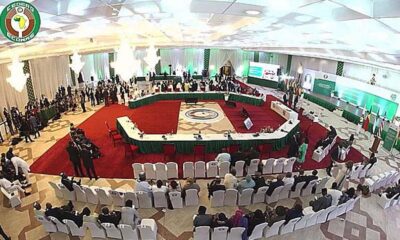Africa
Niger’s military rulers kick out Nigerian, US, two other ambassadors
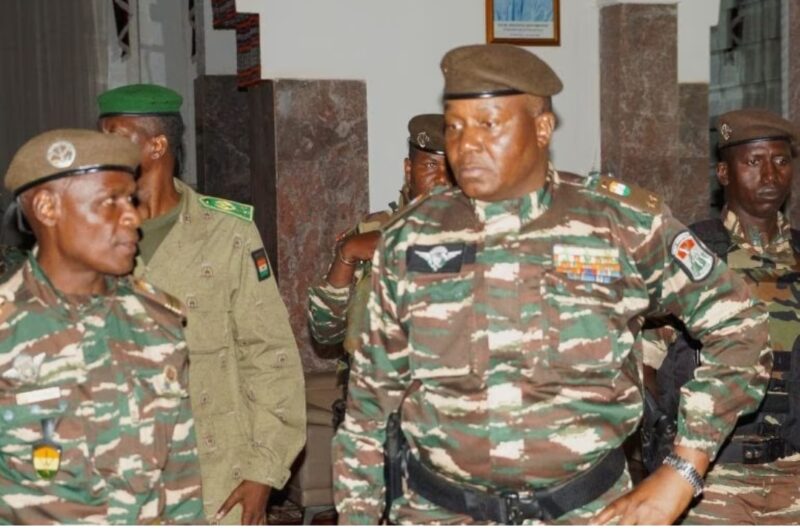
Niger’s military rulers kick out Nigerian, US, two others ambassadors
Niger’s military rulers on Friday gave the French, German, Nigerian and US ambassadors 48 hours to quit the country, amid escalating tension over the threat of military action from the West African bloc ECOWAS to reverse the coup.
The ultimatum against the French envoy was quickly rejected by Paris, which repeated that it did not recognise the military rulers’ authority.
The move by the officers now running the country was the latest escalation in deteriorating relations between the new regime in Niamey and several Western powers, as well as the West African bloc ECOWAS. Nigeria currently holds the presidency of ECOWAS.
Paris has repeatedly backed calls by ECOWAS for the reinstatement of president Mohamed Bazoum, who was overthrown on July 26.
Each letter said it was in response to the refusal of the envoys to respond to an invitation from the ministry for a meeting Friday and other actions of their respective governments “contrary to the interests of Niger”.
On Friday evening, the French foreign ministry said: “The putschists do not have the authority to make this request, the ambassador’s approval coming solely from the legitimate elected Nigerien authorities.”
READ ALSO:
-
Groom faints as Bride dies during bridal shower a day to wedding in Oyo
-
Ronaldo scores hat-trick, Mane twice for Al-Nassr
-
Abducted pastor mistaken for kidnapper, killed in Ogun forest by ‘security agents’
France has 1,500 soldiers based in Niger who had been helping Bazoum in the fight against jihadist forces that have been active in the country for years, while the United States has around a thousand military personnel in the country.
– Pressure from ECOWAS –
Earlier Friday, West Africa’s bloc ECOWAS urged Niger’s coup leaders to reconsider their position and pushed for a return to civilian rule, with the threat of force still “very much on the table”.
While the generals who ousted Bazoum have called for a three-year transition period, the Economic Community of West African States demands the immediate return to constitutional order.
With delegations shuttling into Niamey, ECOWAS said negotiations remained its priority as defence chiefs prepared a standby mission for a possible “legitimate use of force” to restore democracy if needed.
“Even now, it is not too late for the military to reconsider its action and listen to the voice of reason as the regional leaders will not condone a coup d’etat,” ECOWAS commission president Omar Alieu Touray told reporters in Abuja.
“The real issue is the determination of the community to halt the spiral of coup d’etats in the region.”
ECOWAS has already applied sanctions against Niger to pressure the new regime.
The Niger coup has heightened tensions in the Sahel region, where three other governments have fallen to military rebellions since 2020, and jihadists control swathes of territory.
ECOWAS leaders are already negotiating with military administrations in Mali, Burkina Faso and Guinea who are all working towards transitions to democracy after their own coups.
After initially balking, Niger’s new rulers have said they remain open to negotiations.
But they have sent mixed messages, including a threat to charge Bazoum — who remains detained at the official residence with his family — with treason.
– Aggression –
Niger’s military leaders have also warned against any intervention, accusing ECOWAS of preparing an occupying force in league with an unnamed foreign country.
Niger on Thursday agreed with the regimes in neighbouring Mali and Burkina Faso to let their troops into its territory in case of an aggression.
READ ALSO:
- President Tinubu appoints Dekalu-Thomas electricity coy boss, director
-
Protest rocks FUTA as final-year student slumps, dies few days to exam
-
Kremlin denies involvement in Wagner leader’s death, says its ‘absolute lie’
But Touray dismissed plans for ECOWAS “declaring war” or an “invasion” of Niger, insisting the standby mission would be a legitimate force allowed under ECOWAS statutes agreed by members.
“The instruments include the use of force. So it is very much on the table, as are other measures we are working on,” he said.
“If peaceful means fail, ECOWAS cannot just fold its hands.”
ECOWAS has intervened militarily in past crises, including in civil wars. Few details of the new standby force have emerged.
But preparations for any possible use of military force in Niger are risky and already face political resistance in northern Nigeria, a key player in ECOWAS and the region.
Niger’s northern neighbour Algeria has also warned of disastrous consequences for the region from an intervention.
Foreign Minister Ahmed Attaf this week toured West African countries to try to find a solution to a crisis in which Algiers firmly opposes any military option.
“There is a time for everything and we are currently in the time of finding peaceful solutions,” he said on a visit to Benin.
“Let’s put all our imagination into giving every chance to a political solution.”
Niger’s military rulers kick out Nigerian, US, two others ambassadors
bur/jj/lcm(AFP)
Africa
Fuel hits N8,000/litre in Niger, country seeks help from Nigeria

Fuel hits N8,000/litre in Niger, country seeks help from Nigeria
With the fuel crisis bedevilling the Republic of Niger, some of its military officials have visited Abuja to seek support from Nigeria to tackle the shortage of Premium Motor Spirit in the country.
It was gathered that the delegation successfully got the approval for 300 trucks of fuel from the Nigerian government.
Trouble started for Niger -which has been reliant on a Chinese refinery – after the refinery was shut down due to some misunderstanding with the supplier.
This led to Niger turning to Nigeria for help to ameliorate the fuel shortage experienced by the country.
READ ALSO:
- Kano govt clarifies appeal court ruling on Sanusi’s reinstatement as emir
- NAF strikes kill notorious bandit kingpins, 20 others in Zamfara
- Chelsea beat Man City to win Women’s League Cup
Officials from the Nigerian government noted that the deal was approved with the hope of using it as a bargaining tool with Niger.
“We do not want to blow our trumpet. Rather, we want to use it as a bargaining chip for negotiation, as we continue to engage with them to bring them back to ECOWAS.
“Let them get more from us. I am confident that gradually they will come back to ECOWAS because they do not have enough resources to import food to sustain their citizens,” the official said while pleading anonymity.
Sources stated that fuel prices in Niger were hitting N8,000 per litre
However, some transborder businessmen have attributed the fuel scarcity in Niger to the lingering relationship between the country and Nigeria.
They noted that in some cross-border towns to Niger, fuel is being sold for between 1,200 CFA and N3,500 (N2,500 and N8,500).
Fuel hits N8,000/litre in Niger, country seeks help from Nigeria
Africa
ECOWAS activates standby force against insurgency
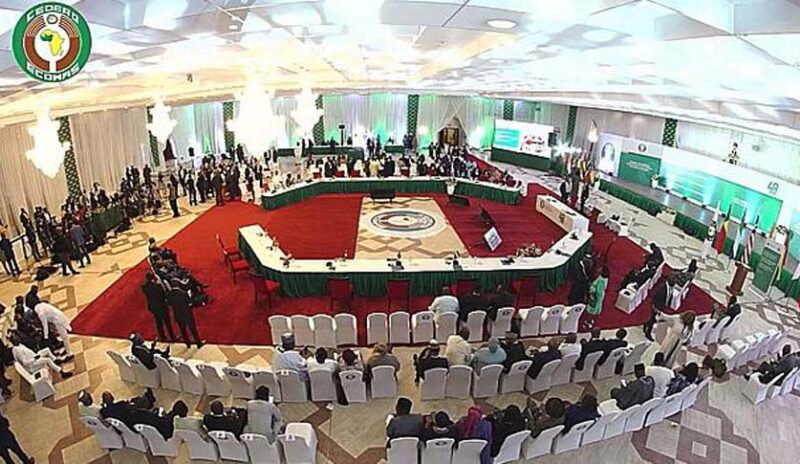
ECOWAS activates standby force against insurgency
The Economic Community of West African States (ECOWAS) has activated its Standby Force to curb terrorism and other transborder crimes in the subregion.
The Minister of Defence, Mohammed Badaru, who disclosed this in Abuja on Tuesday at the Forty-third ordinary meeting of ECOWAS Committee Chiefs of Defence Staff said the economic growth of the region is dependent on stable peace.
The minister added that there is a need for members of ECOWAS to close ranks against all forms of threats against the region.
On January 29, 2025, ECOWAS recognised the exit of three of its former members Burkina Faso, Mali, and Niger Republic upon the expiration of a one-year notice period.
READ ALSO:
- Supreme court dismisses appeal against Aiyedatiwa’s candidacy
- US set to present 30-day ceasefire offer to Russia
- BREAKING: House of Reps orders shutdown of porn websites nationwide
However, in “the spirit of regional solidarity”, ECOWAS asked its member countries to still recognise the national passports of the three exiting countries bearing the ECOWAS logo until further notice.
Their departure from the bloc has fractured the region and is leaving the ECOWAS grouping with an uncertain future.
The three junta-led countries formally notified ECOWAS of their plan for an “immediate” withdrawal in January 2024, citing the organisation’s excessive dependence on France in particular.
Paris has become the common enemy of the three juntas, which now favour partnerships with countries such as Russia, Turkey and Iran.
However, ECOWAS required one year’s notice for the departure to be effective — that deadline falls on January 29, 2025.
The three Sahelian countries have teamed up to form a separate confederation called the Alliance of Sahel States (AES).
ECOWAS activates standby force against insurgency
Africa
Policewoman arrested for murder of husband, female friend

Policewoman arrested for murder of husband, female friend
A 42-year-old police sergeant, Nyiko Nyathi was arrested in connection with the kidnapping and brutal murder of her husband and his ‘female friend’ in Mpumalanga, South Africa.
The officer handed herself over to authorities at Bushbuckridge police station, according to Mpumalanga provincial police spokesperson, Brigadier Donald Mdhluli.
She appeared before the Bushbuckridge Magistrate’s Court on Monday, March 10, 2025, facing charges for the m8rder of her husband and another woman.
“According to information, in February 2024, Lawrence Alba Mashego, 44, was reportedly attacked by a group of armed men at his house in Boikhutsong Trust in Bushbuckridge. The armed men robbed him of his Toyota Quantum and Ford Escort, then he got kidnapped,” said Mdhluli.
READ ALSO:
- One of 5 applying for students loan is female – NELFUND
- APC council chairmanship aspirant hacked to death in Lagos
- Tinubu: Fuel subsidy removal aimed at securing future for unborn generations
“The two vehicles were reportedly used by the armed suspects as a mode of transport to reach a certain house in Zoeknog. At the house, they found Victoria Lebyane, 44, Mashego’s female friend, in possession of Mashego’s bank cards.”
Lebyane was then robbed of about R4,000 cash as well as some bank cards belonging to Mashego. After that, Mashego and Lebyane were m8rdered by the assailants.
“The matter was probed by the men and women in blue, where a thorough investigation was carried out, leading to the arrest of four suspects in connection with the incident. One of the suspects then pleaded guilty and was sentenced to 77 years imprisonment,” said Mdhluli.
As the police intensified their investigations, the police sergeant was implicated in the m8rder of her husband Mashego, and Lebyane.
Following the court appearance on Monday, the case was postponed to Wednesday, for a formal bail application.
Meanwhile, acting provincial commissioner of police in Mpumalanga, Major General Zeph Mkhwanazi, has welcomed Nyathi’s arrest.
He emphasised that the law will take its course on anyone suspected to have committed crime, regardless of their social status or position.
“The SAPS remains resolute to be intolerant to any criminality within our ranks,” said Mkhwanazi.
Policewoman arrested for murder of husband, female friend
-

 metro3 days ago
metro3 days agoNatasha: Court blocks recall attempt, stops INEC
-

 metro22 hours ago
metro22 hours agoCourt refers Ojukwu property case to alternative dispute resolution
-

 Entertainment3 days ago
Entertainment3 days agoI didn’t snatch Asake’s mother from her husband -Musibau Alani
-
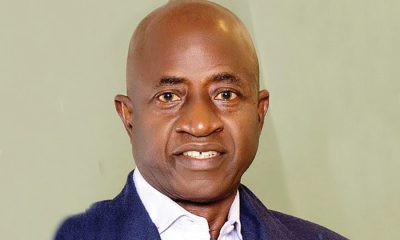
 Sports3 days ago
Sports3 days agoOdegbami speaks on Osimhen breaking his 44-year goals record
-

 Entertainment2 days ago
Entertainment2 days agoSome ladies in movie industry ready to sleep their way to fame — Jide Kosoko
-
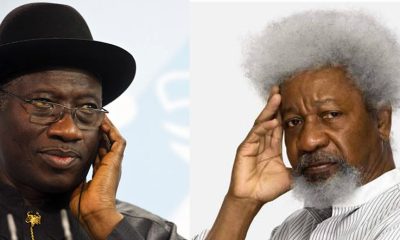
 metro2 days ago
metro2 days agoPresidency blasts Jonathan, Soyinka over comments on emergency rule in Rivers
-

 metro3 days ago
metro3 days agoOluwo accuses Ooni of plotting to dethrone him
-

 metro3 days ago
metro3 days agoBoko Haram attacks military base in Adamawa







